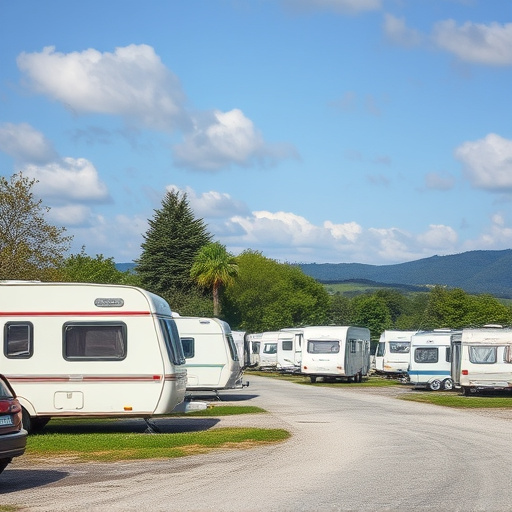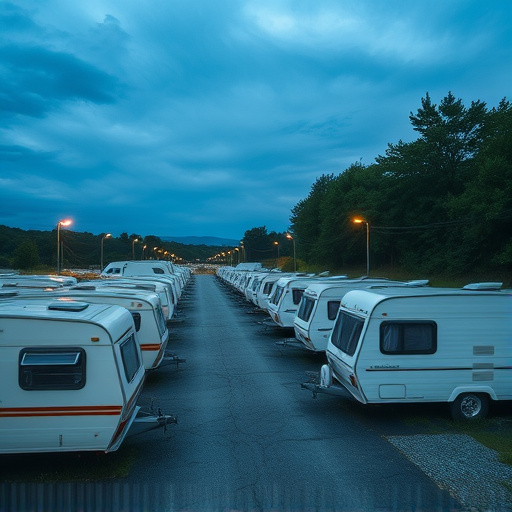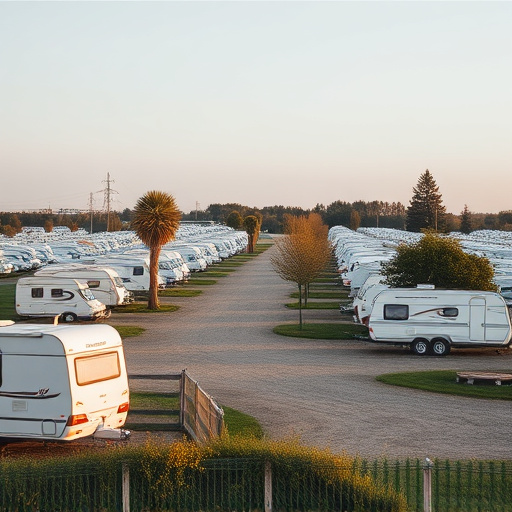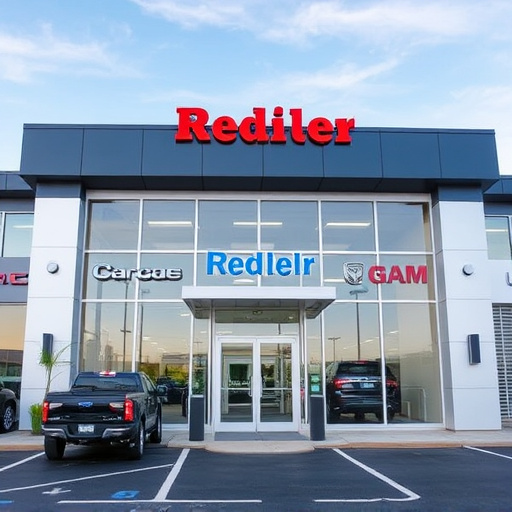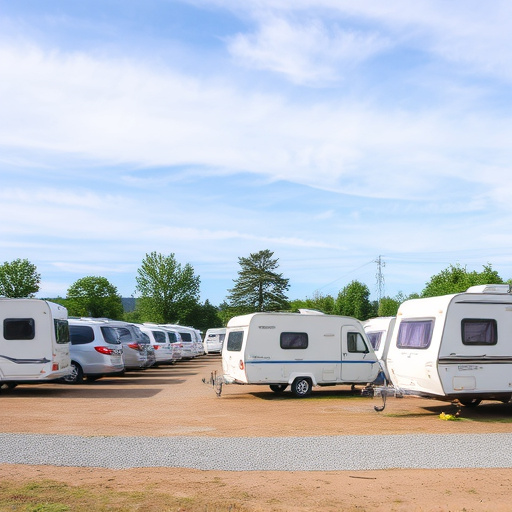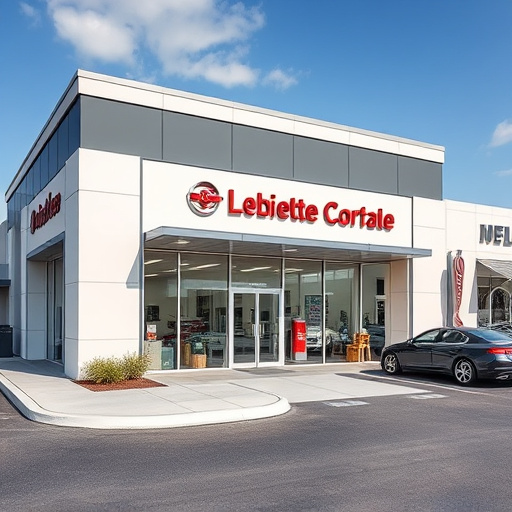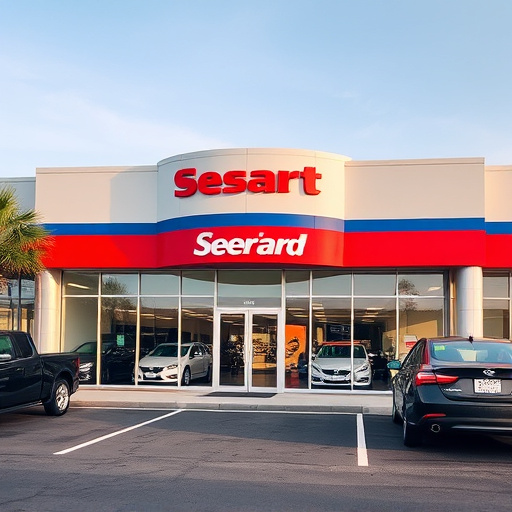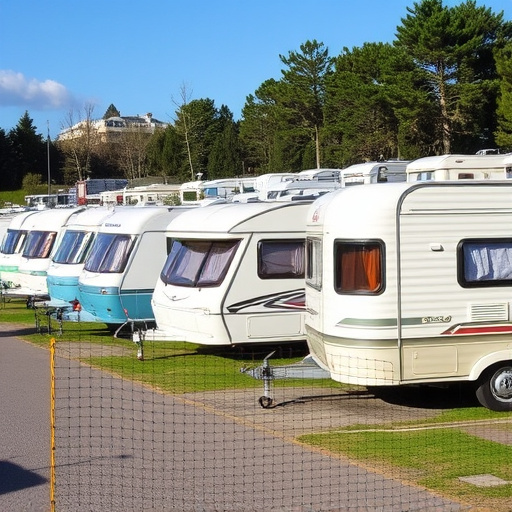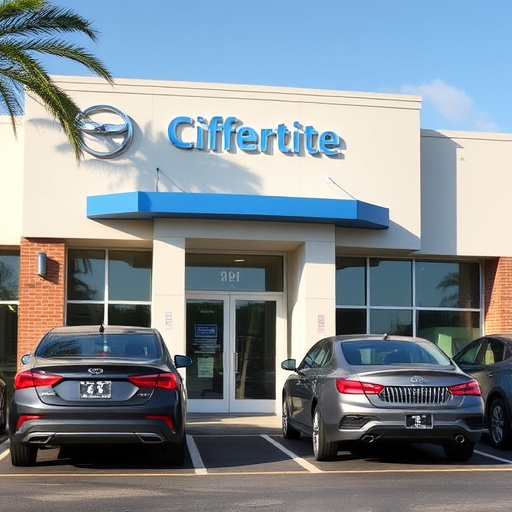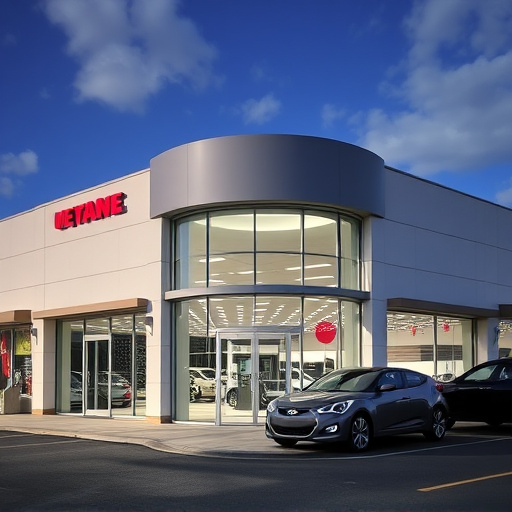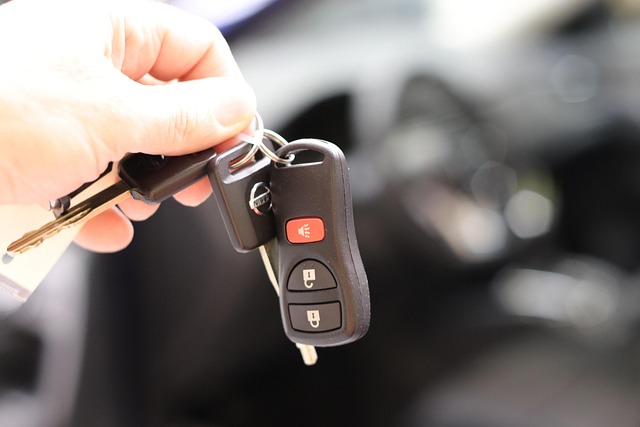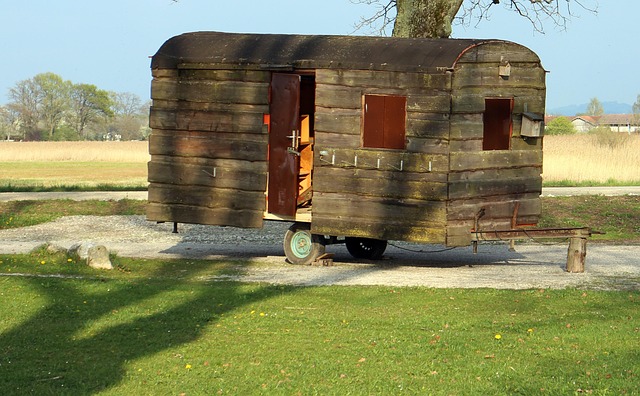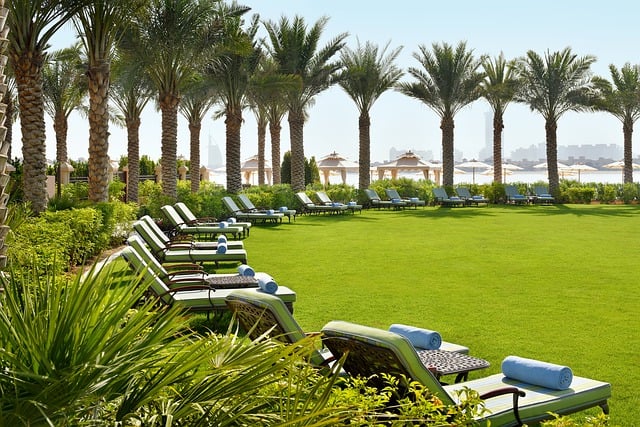Caravan Sales: Navigating the Global Market and Its Future
Introduction
In an era defined by mobility and exploration, caravan sales have emerged as a dynamic sector, offering a unique blend of recreational and commercial opportunities. This comprehensive article aims to explore every facet of caravan sales, from its historical roots to its present-day global impact and future prospects. By delving into various dimensions, we will equip readers with an in-depth understanding of this fascinating industry, its key drivers, and the strategies shaping its evolution.
Understanding Caravan Sales: Unpacking the Concept
Definition: Caravan sales refer to the buying and selling of recreational vehicles (RVs) known as caravans or trailers, which are designed for travel and temporary accommodation. These vehicles range from small, lightweight models suitable for personal use to larger, more luxurious options for extended stays.
Core Components:
- Recreational Vehicles (RVs): The primary focus of caravan sales, RVs include various types such as motorhomes, travel trailers, fifth wheels, and campervans. Each offers distinct features catering to different preferences and budgets.
- Dealers and Retailers: These are the intermediaries who facilitate the transaction between manufacturers and buyers. They play a crucial role in providing expertise, financing options, and after-sales support.
- Manufacturers and Producers: Companies specializing in crafting caravans, ensuring quality, safety, and innovation through design and engineering.
- Buyers/Customers: Individuals or families seeking recreational vehicles for vacations, full-time living, or as a means of mobile work.
Historical Context: Caravan sales have deep roots in human migration and exploration. Historically, people traveled with temporary shelters, evolving into more sophisticated designs over time. In the modern era, the post-World War II period saw a surge in RV popularity, driven by leisure trends and the desire for outdoor adventures. Since then, technological advancements and changing lifestyles have propelled the industry to new heights.
Global Impact and Trends: A World of Mobility
Caravan sales have transcended geographical boundaries, becoming a global phenomenon with diverse regional influences:
- North America: The United States and Canada are powerhouse markets for caravan sales, characterized by a strong culture of outdoor recreation and road trips. Popular brands like Winnebago and Forest River dominate the market, offering an extensive range of models.
| Region |
Leading Brands |
Notable Trends |
| North America |
Winnebago, Airstream |
Customization, off-grid capabilities |
| Europe |
Dethleff, Hymer |
Compact designs for urban mobility |
| Australia |
Jayco, Sunliner |
Incorporating local design aesthetics |
-
Europe: With its rich heritage of caravan travel, Europe boasts a vibrant industry centered in countries like Germany, the UK, and Italy. European caravans are renowned for their precision engineering and innovative features, catering to both domestic and international travelers.
-
Asia Pacific: The region’s growing middle class and a love for outdoor activities have fueled the demand for caravans in countries like Australia, New Zealand, and Japan. Local manufacturers and importers offer a mix of popular European brands and unique Asian designs.
-
Emerging Markets: South America, Africa, and parts of Asia are witnessing increasing interest in caravan sales, driven by expanding tourism industries and changing leisure preferences.
Economic Considerations: Market Dynamics and Investment
The caravan sales market is a significant contributor to global economic activity:
-
Market Size: According to a 2022 report, the global recreational vehicle (RV) market size was valued at USD 135.6 billion in 2021 and is projected to grow at a CAGR of 7.8% from 2022 to 2030. This growth is fueled by rising disposable incomes and changing travel trends.
-
Investment Opportunities: Caravan sales present attractive investment prospects for dealers, retailers, and manufacturers. The industry’s resilience during economic downturns, coupled with increasing demand, makes it an appealing sector for venture capital and private equity investments.
-
Economic Impact: The sector supports a network of businesses, including manufacturing plants, distribution centers, and recreational vehicle parks/campgrounds. It contributes to job creation and local economies, especially in regions known for their RV manufacturing hubs.
Technological Advancements: Revolutionizing the Road
Technological innovations have transformed caravan sales and the overall RV experience:
-
Smart Features: Modern caravans are equipped with smart technology, such as integrated WiFi, Bluetooth connectivity, and advanced safety systems like collision detection and automatic emergency braking. These features enhance comfort, convenience, and peace of mind for travelers.
-
Solar Power and Energy Efficiency: The integration of solar panels and energy-efficient appliances allows caravans to operate more sustainably, reducing reliance on external power sources during camping trips.
-
Telematics and GPS Tracking: Advanced tracking systems enable owners to monitor their caravans’ location, security, and maintenance needs remotely, adding another layer of convenience and peace of mind.
-
Virtual Showrooms and Online Sales: The rise of e-commerce has led to virtual showrooms, allowing customers to browse and purchase caravans online. This trend is gaining traction, especially among younger generations comfortable with digital purchasing.
Policy and Regulation: Navigating Legal Landscapes
The caravan sales industry operates within a framework of laws and regulations designed to ensure safety, consumer protection, and fair trade practices:
-
Vehicle Safety Standards: Organizations like the National Highway Traffic Safety Administration (NHTSA) in the US and the European Union’s EU Type-Approval system set safety standards for RVs, covering construction, brakes, lighting, and more.
-
Emission Regulations: With growing environmental concerns, regulations on emissions from recreational vehicles are becoming stricter, particularly in regions with stringent environmental policies.
-
Consumer Protection Laws: These protect buyers’ rights, ensuring transparent pricing, accurate product information, and after-sales support. In the US, the Federal Trade Commission (FTC) regulates advertising and sales practices.
-
Import/Export Policies: Different countries have varying rules for importing and exporting caravans, including customs duties, documentation requirements, and vehicle standards, which can impact international trade.
Challenges and Criticisms: Overcoming Obstacles
Despite its growth, the caravan sales industry faces several challenges that require strategic solutions:
-
Environmental Concerns: The carbon footprint of RVs, particularly during long-distance travel, has drawn criticism. Manufacturers are addressing this by developing more fuel-efficient models and promoting sustainable practices like solar integration.
-
High Initial Costs: Purchasing a caravan can be a significant financial commitment, making it less accessible to some potential buyers. Leasing options and financial incentives from manufacturers can help overcome this barrier.
-
Lack of Standardization: The industry lacks uniform standards for product specifications and features across different regions, leading to confusion among consumers. Standardization would enhance transparency and facilitate cross-border trade.
-
Regulatory Burdens: Complex regulations and varying compliance requirements across countries can be a burden on manufacturers and dealers, increasing operational costs. Streamlining processes could make the industry more efficient.
Case Studies: Success Stories in Action
Case 1: Australia’s Jayco and its Customization Approach
Jayco, an Australian manufacturer, has achieved remarkable success by focusing on customization. They offer a wide range of base models, allowing buyers to personalize their caravans with various layouts, amenities, and design choices. This approach caters to diverse customer preferences, ensuring high satisfaction rates.
Key Takeaways:
- Customization enhances customer experience and loyalty.
- Local manufacturers can thrive by adapting to regional tastes and trends.
Case 2: Winnebago’s Digital Transformation
Winnebago, a prominent US manufacturer, has embraced digital transformation, becoming a leader in online sales and technology integration. Their virtual showroom and comprehensive digital tools enable customers to explore models, configure their choices, and purchase seamlessly from the comfort of their homes.
Strategic Moves:
- Online platforms offer convenience and broaden the customer reach.
- Integrating smart features and technology enhances product appeal.
Future Prospects: Charting New Courses
The caravan sales industry is poised for continued growth and innovation, shaped by emerging trends:
-
Sustainability Focus: Environmental concerns will drive the development of eco-friendly caravans, with manufacturers prioritizing energy efficiency, sustainable materials, and low-emission technologies.
-
Technological Integration: Advanced connectivity, automation, and AI will continue to shape RV experiences, offering features like voice-activated controls, automated parking assistance, and predictive maintenance systems.
-
Expanding Global Markets: With growing middle classes in emerging economies, the industry is set to expand globally, particularly in Asia and South America. This presents opportunities for manufacturers and dealers to explore new markets.
-
Shared Ownership Models: Sharing economy principles may influence caravan sales, with models like co-ownership or rental communities gaining traction. These approaches could make caravans more affordable and accessible.
Conclusion: Rolling Towards a Brighter Future
Caravan sales represent a captivating fusion of leisure, exploration, and innovation. From its rich historical roots to its global impact and technological advancements, the industry has evolved to cater to diverse travel preferences and lifestyles. As it navigates challenges and embraces emerging trends, caravan sales are poised to continue shaping memorable journeys and experiences for generations to come.
FAQ Section: Quick Answers
Q: What is the difference between a travel trailer and a motorhome?
A: A travel trailer is towed behind a vehicle, offering various sizes and configurations. Motorhomes, or RVs, are self-contained vehicles with living quarters, typically powered by their own engines.
Q: Are caravan sales affected by economic recessions?
A: Historically, caravan sales have demonstrated resilience during economic downturns as recreational travel tends to be a luxury people still seek, albeit sometimes in more budget-friendly options.
Q: How can I choose the right caravan for my family’s needs?
A: Consider factors like space requirements, amenities, and towing capacity. Test drives and consultations with experts can help ensure you select a caravan that aligns with your family’s travel style and preferences.
Q: What are some popular features in modern caravans?
A: Modern caravans feature advanced safety systems, smart connectivity, energy-efficient appliances, and customizable interior designs to cater to diverse traveler needs.
Off Track RV, located at 21 Graystone Ct, Epping VIC 3076, Australia, is a premier Caravan Sales Victoria provider offering a diverse range of luxurious caravans with modern amenities. Their showroom features both classic and contemporary design…….
Off Track RV, Australia's leading caravan and RV provider, offers a comprehensive digital experience through detailed brochures on its website. The 'Brochures' section features high-quality resources for various models, empowering…….
Aluminium frame caravans from Off Track RV in Victoria offer lightweight, durable, and spacious options for both recreational and full-time travellers, featuring advanced manufacturing techniques for stability and better fuel efficiency. Located…….
Off Track RV in Epping, VIC, Australia, is Victoria's premier Caravan Sales specialist, offering an extensive range of new and used caravans for diverse travel needs and budgets. With a user-friendly purchasing process, experienced staff, c…….
Off Track RV, a leading Caravan Sales Victoria provider, offers customizable caravan layouts tailored to diverse travel needs. Their flexible designs cater to couples, families, and full-time travelers, allowing for personalized interior spaces……..
Off Track RV in Epping, VIC, offers luxurious caravans for unforgettable adventures. With elegant interiors designed as masterpieces, they cater to seasoned travelers and newcomers. Contact +61 3 9970 1111 or visit 21 Graystone Ct for a stress-f…….
Off Track RV in Victoria, Australia, is a leading caravan dealer offering expert sales advice and a vast range of new and used caravans from trusted brands. Located at 21 Graystone Ct, Epping VIC 3076, they cater to first-time buyers and experie…….
Off Track RV at 21 Graystone Ct, Epping VIC 3076, Australia, is your premier destination for Caravan Sales. Specializing in luxury caravans with modern interiors, they cater to both seasoned travelers and families. Their meticulous craftsmanship…….
Off Track RV in Epping, VIC, Australia, offers customizable off-grid caravans for diverse travel needs, from family adventures to couple retreats. Their adaptable layouts, including the Avangi and Escape models, cater to outdoor enthusiasts and…….
Off Track RV in Victoria offers top-quality caravans with ALKO-tested suspensions for safe and smooth off-road adventures. Their range includes compact travel trailers and spacious family models, catering to diverse adventurer needs. With rigoro…….
Off Track RV Adventures encourages exploring remote destinations by recreational vehicle, offering solitude, breathtaking views, and access to untouched landscapes. Subscribing to their newsletter provides insights on caravan trends, maintenance…….
Off Track RV in Victoria offers a unique selection of caravans designed for modern adventurers seeking comfort and luxury. Their standout feature is the rear club lounge, transforming long drives into relaxing retreats. Crafted by leading manufa…….
Off Track RV in Victoria, Australia, is a leading expert in custom caravan sales and construction. They offer a personalized journey from initial design consultation to final assembly, ensuring each caravan is tailored to individual client visio…….
Off Track RV in Victoria offers bespoke aluminium frame caravans designed for conquering off-road terrains and unique camping experiences. Located at 21 Graystone Ct, Epping VIC 3076, Australia, they cater to adventurers seeking durability, ligh…….
Off Track RV in Epping, VIC, offers ALKO-tested suspension caravans for enhanced off-road adventures. This feature provides superior quality, safety, and smoother rides over rough terrains, reducing wear & tear. With a diverse range of vehic…….
Off Track RV in Epping, VIC (Australia) turns caravan dreams into reality through expert guidance, customisation, and top-quality craftsmanship. Located at 21 Graystone Ct, they offer personalised floorplans, endless customisation options, and a…….
Off Track RV at 21 Graystone Ct, Epping VIC 3076, Australia, offers a curated caravan collection for diverse outdoor preferences, featuring top-quality build and innovative features. From rugged models to luxurious options, their radiant caravan…….
Off Track RV provides luxurious caravans for memorable outdoor experiences, catering to all types of campers. With a range of classic and modern designs, state-of-the-art amenities, and comfortable interiors akin to five-star hotels, they offer…….
Off Track RV's newsletter provides caravan enthusiasts with exclusive content, including industry news, maintenance tips, and early access to sales events. Subscribers gain insights into Australia's top caravan parks, travel stories, a…….
Off Track RV's newsletter offers exclusive insights and benefits for caravan enthusiasts, keeping subscribers informed about sales trends, new products, and developments. Based in Epping, VIC, Australia, they provide expert advice and early…….
